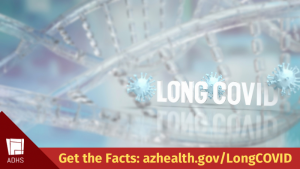 For most people who get COVID-19, isolation, rest, and following a doctor’s advice leads back to full health within a few weeks, especially if you were up-to-date on vaccination.
For most people who get COVID-19, isolation, rest, and following a doctor’s advice leads back to full health within a few weeks, especially if you were up-to-date on vaccination.
If you can’t shake fatigue a month or more later, however, chances are you’re among the millions of Americans facing long COVID.
Also referred to as post-acute COVID and long-haul COVID, long COVID is a long-term condition that can happen to anyone who has tested positive for COVID-19, even if they did not initially experience any symptoms. Patients who experience new, persisting, or lingering health issues four or more weeks after being infected with the virus that causes COVID-19 may have long COVID.
While the number of long-COVID cases is more difficult to track, the Centers for Disease Control and Prevention (CDC) estimates that about one in five adults previously infected with COVID-19 has experienced at least one health condition that could be considered long COVID.
To help people who have or think they might have long COVID, we’ve created a resource at azhealth.gov/LongCOVID. It explains the condition and common symptoms, how it is diagnosed, techniques for living with the condition, and how to get support.
For everyone, this website includes crucial information on how to reduce your chances of developing long COVID. That starts with getting vaccinated and being up-to-date on any recommended booster doses. Research suggests that people who are vaccinated but experience a breakthrough infection are less likely to report post-COVID conditions.
Vaccination and boosters are recommended for everyone, including people who have previously had COVID-19 or long COVID. So please find a provider at azhealth.gov/FindVaccine and make sure you are up to date on vaccination against COVID-19.










